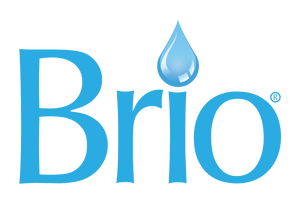As kids grow into their teens, it’s easy for nutrition to slide down their list of priorities, just when it should be front and center. Teen years are filled with rapid growth and development, making the need for good nutrition higher than ever. During this critical time, teens go through some of the most significant physical and mental changes in their lives. Yet, many fail to get the essential nutrients they need each day, which poses a real challenge for maintaining proper health.
Vitamins and minerals play a crucial role in everything from strengthening the immune system to supporting healthy bones and sharp minds. Let’s dive into the A to Zinc of teenage nutrition and see how these important nutrients can enhance their health and overall well-being as they navigate these transformative years.

Which are the best vitamins for teens?
As teenagers undergo physical and mental changes, their behaviors and preferences toward food may shift. Many teens fail to meet the necessary nutrient levels in their daily diets, posing a challenge to ensuring they consume well-rounded meals.
Adolescents might develop a preference for commercial junk foods and feel pressured to conform to peer norms regarding food choices. They may also start questioning the ethics of their food consumption, such as eating meat and dairy.
Teenagers may also experience fluctuations in blood sugar levels and may lean toward sweeter foods and caffeine. Providing balanced meals, readily available healthy snacks and plenty of fresh, clean water can help deter them from gravitating towards unhealthy choices.

It’s essential for parents to engage in conversations about food with their teens to provide accurate information and guidance. Seeking advice from a nutritional therapist can offer objective insights and alleviate the parent-teen dynamic.
Here, we’ll cover a range of the best vitamins for teens as well as minerals that are particularly important for teenagers:
Vitamin A
Known for its role in supporting vision, immune function, and skin health, vitamin A is essential for teens as they undergo rapid growth and development.
Vitamin B
The B vitamins, including B12, B6, and folate, play a crucial role in energy metabolism, brain function, and mood regulation, making them essential for teenage health.
Vitamin C
As a powerful antioxidant, vitamin C helps support immune function, collagen production, and wound healing, making it especially important for teenagers with active lifestyles.
Vitamin D
Vital for bone health and calcium absorption, vitamin D is essential for teenagers, particularly those who spend a lot of time indoors or live in regions with limited sunlight exposure.
Calcium
Critical for bone development and growth, calcium is essential for teenagers to achieve peak bone mass and reduce the risk of osteoporosis later in life.
Iron
Iron is crucial for oxygen transport, energy metabolism, and cognitive function, making it vital for teenagers, especially during periods of rapid growth and development.
Magnesium
Important for muscle function, nerve function, and energy production, magnesium is essential for teenagers to maintain optimal health and performance.
Zinc
Essential for immune function, wound healing, and hormone regulation, zinc plays a key role in supporting the overall health and well-being of teenagers.
What nutritional demands do teenagers face?
Here’s what your teen is facing – and which foods to offer them to target specific issues and boost their overall well-being and health.
1. Adolescent mood, emotions, and physical changes

During adolescence, teens experience significant changes in mood and emotions, particularly with the onset of periods in girls. Essential nutrients like vitamin B6 and zinc play a crucial role in hormone production, mood regulation, and maintaining skin health, including managing acne and pimples.
The teenage years mark a period of rapid skeletal development, making adequate nutrition essential for bone health. Adolescents have increased requirements for bone-building nutrients such as calcium, phosphorus, magnesium, and vitamin D. Official guidelines indicate rising calcium needs from childhood through the teenage years, with levels decreasing after age 19.
To support bone health, teens should incorporate mineral-rich foods into their meals, including:
- meat
- seafood
- beans
- legumes
- nuts
- seeds
- dark green vegetables.
Prioritizing these foods ensures that teenagers receive the essential nutrients needed to support their overall health and well-being during this critical stage of growth and development.
2. Vitamin D deficiency
Encouraging your teen to spend more time outdoors is crucial for their overall health and well-being. Research from the British Nutrition Society highlights that many teenagers lead largely inactive lifestyles, spending considerable time indoors.
This sedentary behavior puts them at risk of vitamin D deficiency, as only 10% of our vitamin D requirement comes from food sources. Therefore, it’s essential to emphasize the importance of sun exposure and consider supplementation for teenagers throughout the year to ensure they maintain adequate vitamin D levels.
3. Supporting growing brains

Supporting teenage cognitive function is vital for their overall development and well-being. From age 11 onwards, iodine requirements increase significantly as it plays a crucial role in various bodily functions, including normal growth, production of thyroid hormones, cognitive function, and energy levels.
Encouraging teenagers to include iodine-rich foods in their diet, such as seafood and seaweed like chlorella or spirulina, can help meet their nutritional needs. Additionally, considering a multivitamin and mineral supplement containing iodine can further support their iodine intake and cognitive function.
In addition to dietary sources, ensuring access to clean and mineral-rich water is essential for teenage health. Brio water filters provide reverse osmosis-treated water with added minerals, offering a convenient and efficient way to stay hydrated and support overall well-being. Minerals such as calcium, magnesium, and potassium are essential for maintaining proper hydration, supporting bone health, and regulating muscle function, making them especially beneficial for teenage health. Read about the benefits of mineral-rich alkaline water.
4. Supporting teenage periods
During adolescence, meeting iron requirements becomes especially important to support growth, muscle development, and overall health. Following the onset of periods, girls require more iron than boys to replenish the iron lost through menstrual blood. Iron is essential for cognitive development, maintaining healthy energy levels, and supporting a robust immune system. Vitamins for teen girls such as zinc, B-6, selenium and magnesium are particularly beneficial, supporting the glands as they learn to properly time hormone secretions.
While meat is an excellent source of iron, it’s also available in plant-based foods like beans, legumes, nuts, seeds, and vegetables. Teens experiencing lethargy should consider consulting their healthcare provider to check their iron and ferritin levels, as these can impact energy levels and overall well-being.
5. Evolving body shapes

During adolescence, specific nutrients become vital for supporting the growth and development of teenagers. Boys tend to experience muscle growth, so ideal nutrients, minerals and vitamins for teen boys include additional protein, zinc, and iron, while hemoglobin (responsible for carrying oxygen in the blood) relies on iron, folate, B12, and copper. Energy production necessitates all B vitamins. Teens should therefore aim for well-rounded meals to ensure they meet these nutrient requirements daily.
A multivitamin can also complement their diet to support growth. Adolescents typically experience rapid growth, accompanied by increased appetite. It’s crucial to meet their energy needs during this period to support their growth spurt fully. This phase represents a critical opportunity for teenagers to develop a healthy body that will serve them well into adulthood.
Girls often see an increase in fatty tissue as their natural body shape develops. Ensuring they consume balanced meals rich in healthy proteins, prioritize adequate sleep, and consider supplementation for picky eaters can help support their growth and development.
6. Teenage stress
During adolescence, teenagers often face increased stress and pressure, whether from academic demands, sports performance or their peers. Some may adopt unhealthy habits like staying up late, which can compromise their growth and energy levels.
Incorporating nutrients like magnesium, B vitamins, and botanicals such as ashwagandha or reishi mushroom can be beneficial for fatigued, under-slept, or stressed teens. Lion’s mane mushroom can be particularly supportive during exams as it may boost thinking and memory processes.
Always consult your physician or other qualified healthcare provider to determine the appropriateness of this information.
7. Teenage emotions

As teenagers’ brains undergo specific changes, they may experience heightened emotions, increased fearfulness, aggressiveness, or even depression. This can lead to difficulties in focusing and concentrating.
Ensuring their diet includes healthy essential fats, known as omega-3, from foods like avocados, nuts, seeds, olive oil, flax, and oily fish can support their emotional well-being and cognitive function.
By incorporating a variety of nutrient-rich foods into their diet, teenagers can ensure they are getting the vitamins and minerals they need to thrive. Remember, a balanced diet, along with regular physical activity and plenty of rest, is key to supporting teenage health and well-being.
Ready to prioritize your teenager’s health and well-being? Discover the benefits of incorporating essential vitamins, minerals, and clean, mineral-rich water into their daily routine. Invest in their health with Brio today!




